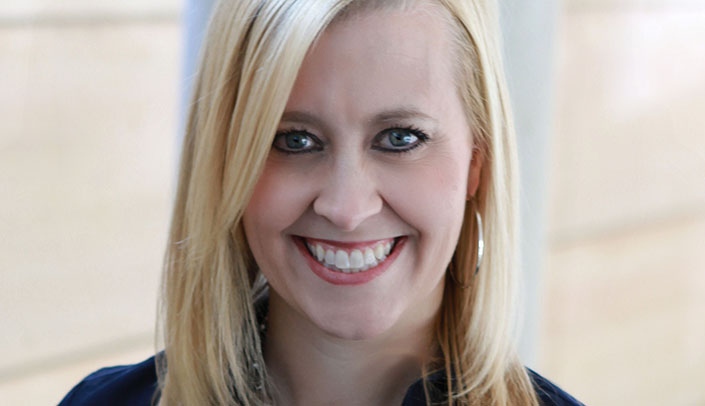Holly Roberts, PhD, associate professor at the Munroe-Meyer Institute’s Department of Psychology, was an invited panelist in a national Health and Human Services Telehealth Innovation Summit with the U.S. Department of Health and Human Services in late December.
 |
Holly Roberts, PhD |
In its invitation, HHS told Dr. Roberts that the summit was designed for leaders in the telehealth community to share what they have learned and to discuss challenges and opportunities in reimbursement, best practices, public-private partnerships, health care resilience, biosecurity and the future of telehealth.
The onset of the COVID-19 pandemic has placed the Mid-America Mental Health Technology Transfer Center (MHTTC) and MMI faculty in a position of leadership in tele-behavioral health training, Dr. Roberts said, pointing to the department’s robust telehealth and tele-teaching programs put into place by Joseph Evans, PhD, more than a decade ago and now overseen by Brandy Clarke, PhD.
“Although many behavioral health providers are familiar with the concept of telehealth, very few had used it in practice (before the pandemic),” Dr. Roberts said. “In March 2020, behavioral health providers were forced to suspend in-person appointments. We were able to begin training the behavioral health workforce as we have been training our students to use telehealth for patient care.”
Telehealth for behavioral health care has been limited at times by insurance companies and state regulations. But as of March 2020, regulations and restrictions loosened across the nation, Dr. Roberts said.
“HHS convened this summit to hear from stakeholders and leaders in the field to encourage continued use of telehealth,” Dr. Roberts said. “They wanted to hear about the importance of telehealth as well as the opportunities for policy change past the pandemic.” “It was an extraordinary experience to dialogue with policy makers who endorse telehealth the same way we’ve endorsed its importance for years.”
The Mid-America MHTTC, led by Dr. Clarke, has been contacted by several other Substance Abuse and Mental Health Services Administration (SAMHSA)-funded technology transfer centers to provide training in telehealth since the pandemic began, sharing MMI’s expertise on questions such as which online platforms to use, how to collect necessary paperwork and even technical advice such as HIPAA-compliant camera positioning.
“Many aspects of telehealth were unfamiliar to the behavioral health workforce in March,” Dr. Roberts said.
The Mid-America MHTTC partnered with other technology transfer centers across the country to present a five-part, real-time series of trainings called “Telehealth Learning and Consultation Tuesdays,” or TLC Tuesdays. More than 4,500 behavioral health providers attended the series in a live-learner capacity, and more than 13,000 people have accessed a website the MHTTC developed to host the videos of the presentations.
“The number of individuals who attended our live series coupled with those who have accessed training materials highlights the impact and importance of telehealth training in March. It is our hope that it allowed patients to continue much needed behavioral health treatment,” Dr. Roberts said.
Elinore McCance-Katz, MD, PhD, director of SAMHSA and assistant secretary for mental health and substance use, thanked Dr. Roberts for her participation. In a post-event letter to panelists, she pledged to “continue to advocate for permanent access to telebehavioral health including use of the telephone.”
“Dr. Roberts’ invitation to the panel is evidence that the Mid-America MHTTC is gaining a national reputation as a group with particular expertise on telehealth in general and telebehavioral health in particular,” said Keith Allen, PhD, director of the MMI Department of Psychology.
“Dr. Roberts has garnered a lion’s share of that acknowledgement as a telebehavioral health expert,” he said. “To the extent that MMI has a mission of becoming world leaders, Dr. Roberts’ participation in this event and the reaction to the MHTTC’s training efforts shows that we are making tangible strides in that direction.”

Great job!! I am so impressed by your expertise.